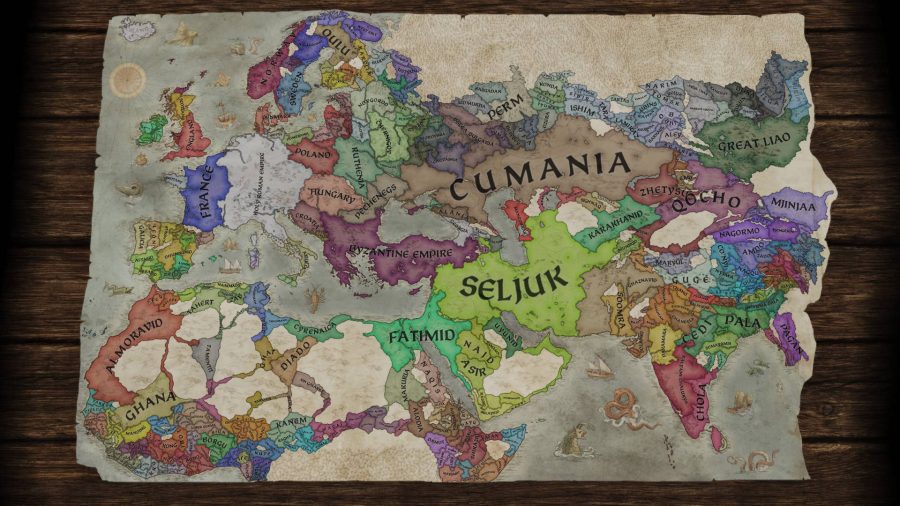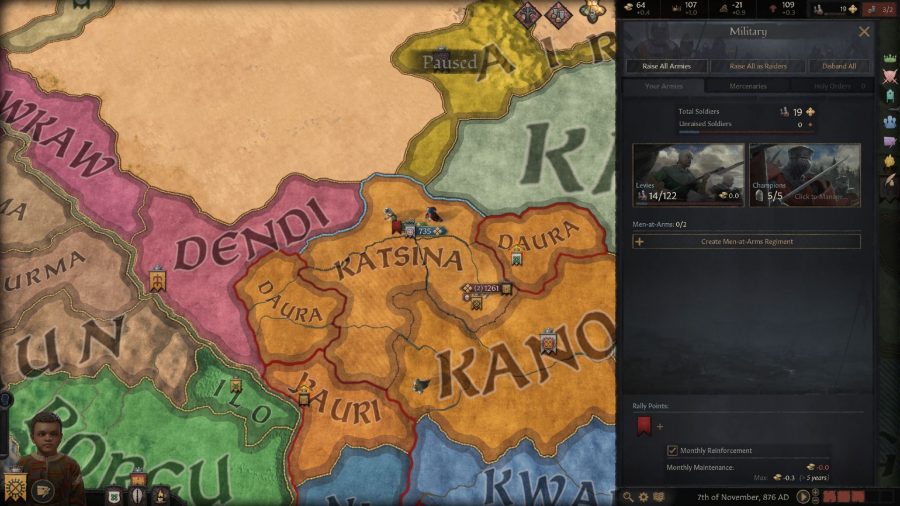Crusader Kings 3: how to raise levies in CK3

Wondering how to raise levies in CK3? In case you're new to Crusader Kings 3, levies are an essential part of any war plans. Levies are, to put it simply, conscripted soldiers from your kingdom or holdings. Just as all parts of your realm raise taxes for you, any holdings you or your vassals have also contribute a set amount of levies that you can call upon in times of war.
Levies themselves are not particularly strong and are the most basic soldier you can get in Crusader Kings 3, boasting just ten damage and ten toughness. However, considering you can amass a few thousand of these from your holdings in a matter of days, they're a vital resource for attacking and defending.
Any of your personal holdings will always produce the maximum number of levies, while the number of levies drummed up by your vassals depends on the feudal contract you hold with them. In this guide, we'll break down the very basics of how to raise levies, and how to increase the number of levy soldiers that you are able to raise at any given moment.
RELATED LINKS:
Crusader Kings 3 succession laws - how do they work?
CK3 character creation: Barbershop and ruler designer guide
How to change the capital city in Crusader Kings 3



